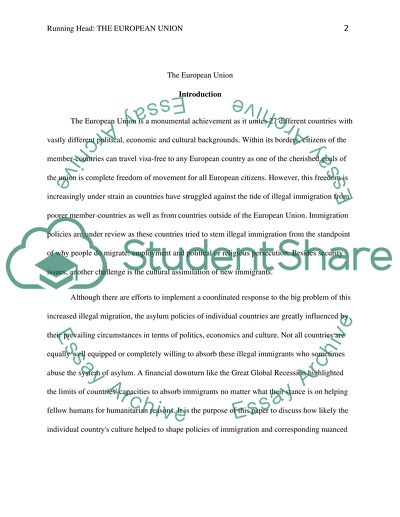Cite this document
(“European Union:Immigration and Asylum Research Paper”, n.d.)
Retrieved from https://studentshare.org/politics/1411151-european-union
Retrieved from https://studentshare.org/politics/1411151-european-union
(European Union:Immigration and Asylum Research Paper)
https://studentshare.org/politics/1411151-european-union.
https://studentshare.org/politics/1411151-european-union.
“European Union:Immigration and Asylum Research Paper”, n.d. https://studentshare.org/politics/1411151-european-union.


